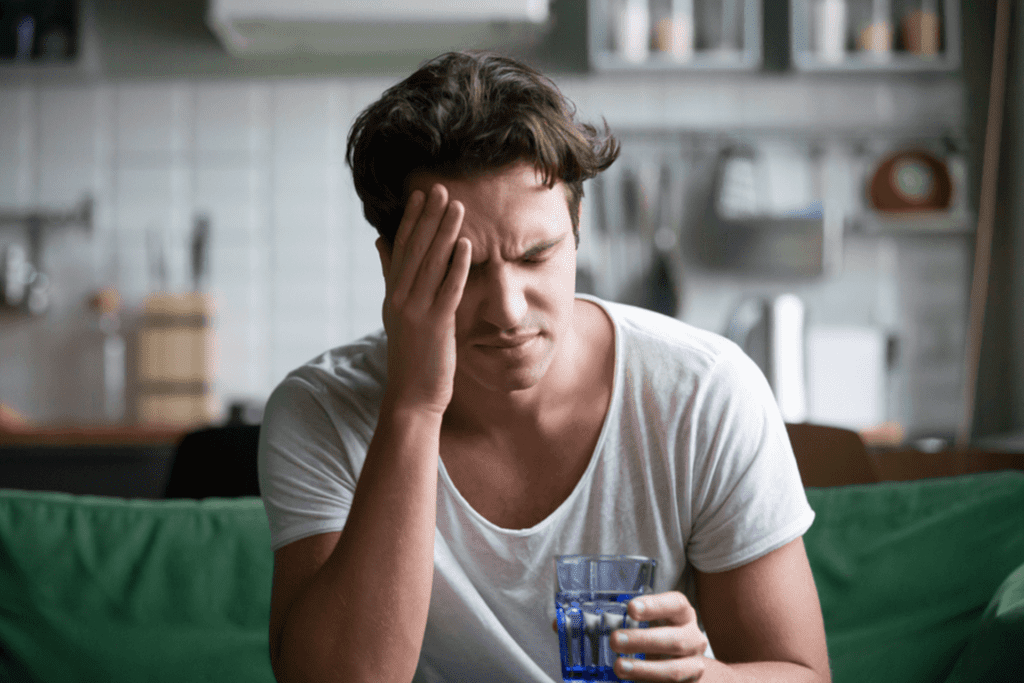The signs of opioid addiction will vary depending on the substance of abuse and other variables. Today’s guide will help you to establish whether someone you love might be struggling with opioid use disorder.
Since the late 1990s, the United States has experienced an ongoing opioid epidemic. By 2017, the government declared the opioid crisis a Public Health Emergency. The most recent data from SAMHSA (Substance Abuse and Mental Health Services Administration) shows that over 2.6 million U.S. adults met the criteria for opioid use disorder in 2020.
Physicians are now prescribing fewer opioid-based painkillers, although CDC (Centers for Disease Control and Prevention) reports that the opioid epidemic is in a third wave due to the ongoing dangers of synthetic opioids like fentanyl.
Familiarizing yourself with the warning signs of opioid addiction is worthwhile if you know someone using this class of medication. While opioids can be highly effective, they are classified as schedule II narcotics under the Controlled Substances Act. This scheduling is due to the high potential of opioids for abuse and addiction.
EARLY WARNING SIGNS OF OPIOID ADDICTION
Addiction to opioids or opiates can involve any of the following substances:
- Oxycodone
- Hydrocodone
- Fentanyl
- Heroin
- Morphine
- Codeine
- Opium
- Methadone
The signs and symptoms of opioid addiction differ from person to person, and according to the specific substance. Some indicators might be detectable soon after the initiation of opioid use. Other symptoms may not manifest for many months.
From the onset of opioid use, any of the following signs may be visible:
- Depression
- Anxiety
- Mood swings
- Insomnia
- Reduced libido
- Weight loss
- Flu-like symptoms
- Impaired coordination
- Drowsiness
- Slurred speech
- Lowered personal hygiene standards
- Reduction in fitness levels and activity
- Isolating behaviors
If you notice the presentation of any of those symptoms in a loved one using opioid painkillers, you should monitor for the signs of a developing opioid addiction. Like all addictions, opioid use disorder is a chronic, relapsing, and incurable brain condition. Fortunately, opioid addiction responds favorably to MAT (medication-assisted treatment) and psychotherapy.
What signs of opioid use disorder should you look out for, then?
When looking for signs of opioid use disorder in someone you know, it’s important to look for certain key indicators that something might not be right.
Here are some of the most common signs to watch for:
- Changes in behavior: People with opioid use disorder may start behaving differently than they normally would. They might become more secretive, start to isolate themselves, and may experience mood swings and irritability.
- Physical symptoms: Opioid abuse can cause physical symptoms such as drowsiness, constricted pupils, slowed breathing, and nausea. Constipation, itching, and dry mouth are also a common sign.
- Changes in appearance: Opioid use disorder can lead to changes in a person’s appearance. They can lose weight, have poor hygiene, and sometimes neglect their physical appearance.
- Financial problems: Individuals with opioid use disorder may have financial problems from spending their money on drugs. They may also start selling their posessions or engaging in illegal activities to get more drugs.
- Withdrawal symptoms: If a person with opioid use disorder is not able to get their hands on opioids, they may go through withdrawal symptoms like as muscle aches, insomnia, anxiety, and sweating.
It’s important to note that not all individuals with opioid use disorder will exhibit these signs and symptoms. However, if you suspect that someone you know may be struggling with opioid use disorder, it’s important to seek professional help as soon as possible.
Opioid use disorder is a treatable condition, and with the right treatment, individuals can recover and lead fulfilling lives.
WHAT DOES OPIOID ADDICTION LOOK LIKE?
The clinical descriptor for opioid addiction is opioid use disorder, sometimes abbreviated to OUD. OUD is a diagnosis applied to addiction to either opioids (prescription opioid painkillers) or opiates (natural opioids like morphine and codeine).
Opioid use disorder is diagnosed according to the number of symptoms listed in DSM5-TR that present. DSM5-TR is the most current edition of American Psychiatric Association’s Diagnostic and Statistical Manual of Mental Disorders.
If you feel that the daily functioning of a friend or family member is impaired and they are unable to control their use of opioids, they may already have opioid use disorder. The definition of opioid addiction is the compulsive use of opioids regardless of adverse outcomes.
While opioid dependence and opioid addiction are closely related, dependence does not always lead to addiction. Using opioids causes tolerance to form rapidly. This means more opioids are required to deliver the same effects. Using more opioids on an ongoing basis can cause dependence to develop. When you are opioid-dependent, you will experience extremely uncomfortable withdrawal symptoms when the effects of opioids wear off. Tolerance and withdrawal are both diagnostic criteria for opioid use disorder, and these criteria are also indicative of physical dependence.
Over time, using or abusing opioids brings about functional and structural brain changes. By this stage, opioids are required to function normally. The severe physical and psychological withdrawal symptoms that present during detox mean that most people find the ideal pathway to recovery is a supervised medical detox before an inpatient or outpatient treatment program.
SIGNS AND SYMPTOMS OF OPIOID ADDICTION
The sustained abuse of any form of opioids is typically characterized by an array of physical and psychological signs.
Due to the risk of fatal opioid overdose, it is advisable that anyone with an opioid addiction engages with professional treatment at their earliest opportunity.
PHYSICAL SIGNS
If you are worried about a loved one who is using opioids, there are some common physical markers indicating that addiction is developing.
These are the most reported physical signs of opioid addiction:
- Slurred speech
- Dilated pupils
- Drowsiness
- Slow movements
- Reduced blood pressure levels
- Slow heart rate
- Low body temperature
- Less sensitivity to pain
- Weight loss
- Vomiting
- Nausea
- Diarrhea
- Cramping
- Joint pain
- Muscle pain
- Itchy skin
- Headaches
- Seizure
- Coma
PSYCHOLOGICAL SIGNS
Taking opioids causes the body to release dopamine in large amounts. Dopamine is a neurotransmitter or chemical messenger associated with positive feelings that stimulates reward pathways in the brain. When this occurs, your brain craves more opioids so that the pleasurable feelings are reexperienced.
Ongoing opioid use damages those reward pathways and triggers structural changes. At the same time, the brain struggles to recognize natural dopamine release. This often leads to the individual experiencing reduced pleasure in everyday activities and permanent changes to the reward center of the brain.
Look out for any of these psychological signs of opioid addiction in a loved one using this class of medication:
- Anxiety
- Depression
- Dramatic mood swings
- Difficulties with focus
- Confusion
- Disorientation
- Extreme behavior changes
- Distorted perceptions of reality
- Tolerance to opioids
- Powerful cravings for opioids
- Difficulty controlling use of opioids
- Withdrawal symptoms when effects of opioids wear off
OVERCOME OPIOID ADDICTION AT GRATITUDE LODGE
Whether you or a loved one is addicted to opioids, we can help you address the physical and psychological components of addiction here at Gratitude Lodge.
Choose from our three affordable luxury rehab centers in Newport Beach, Long Beach, or San Diego and benefit from a supervised medical detox followed by inpatient treatment.
Fortunately, opioid addiction medications can help to alleviate withdrawal symptoms and cravings. The FDA approves several medications for the treatment of opioid addiction. The Gratitude Lodge treatment team can administer these medications during detox and throughout ongoing recovery.
Additionally, you will have access to the following interventions at our Southern California drug and alcohol rehabs located in Newport Beach and Long Beach:
- Group counseling
- Individual counseling
- Psychotherapy (CBT and DBT)
- Family therapy
- Holistic therapy
- 12-step immersion program
Help a friend or family member to move from opioid addiction into recovery by connecting with Gratitude Lodge today at 800-994-2184.




























